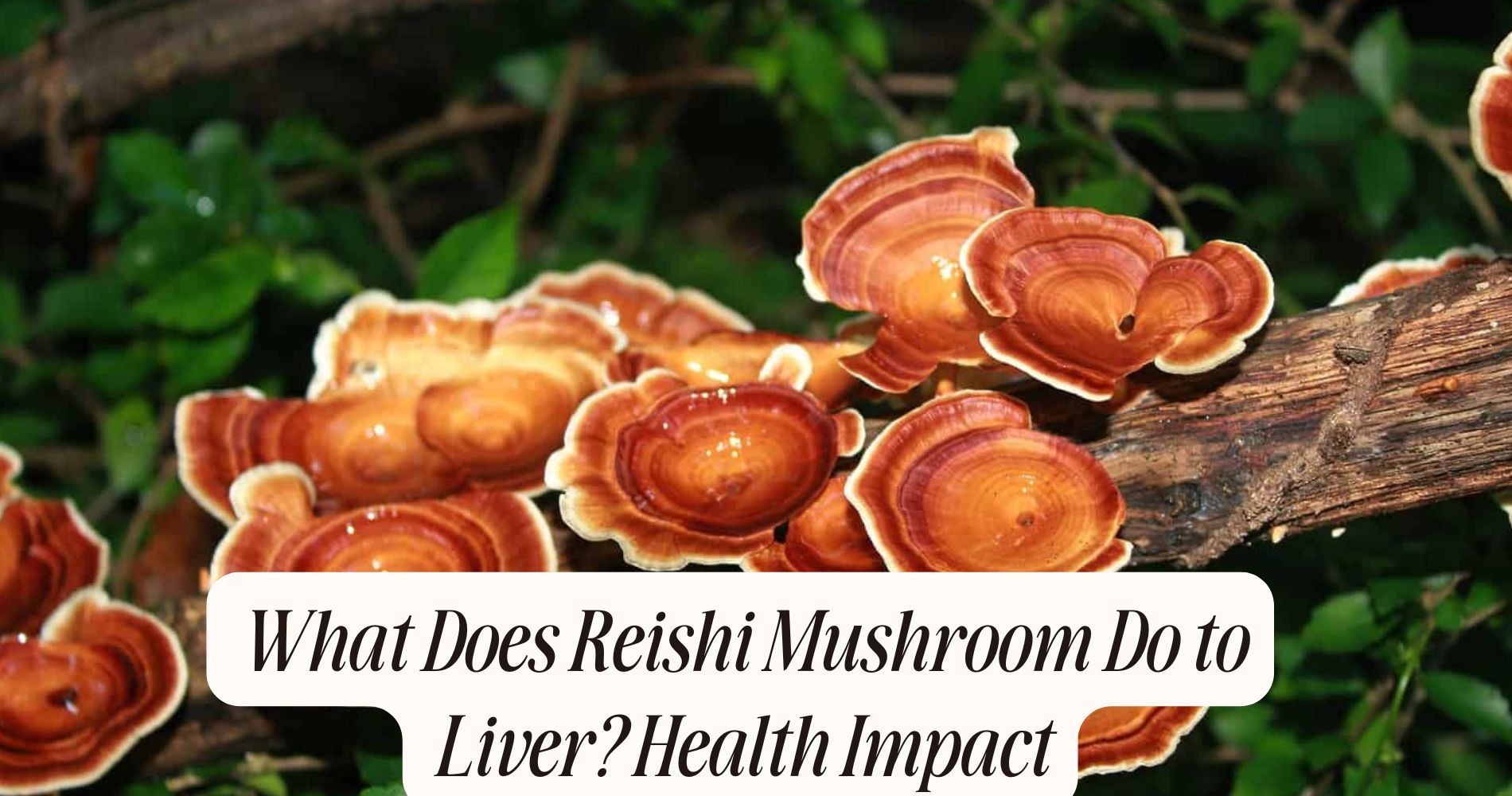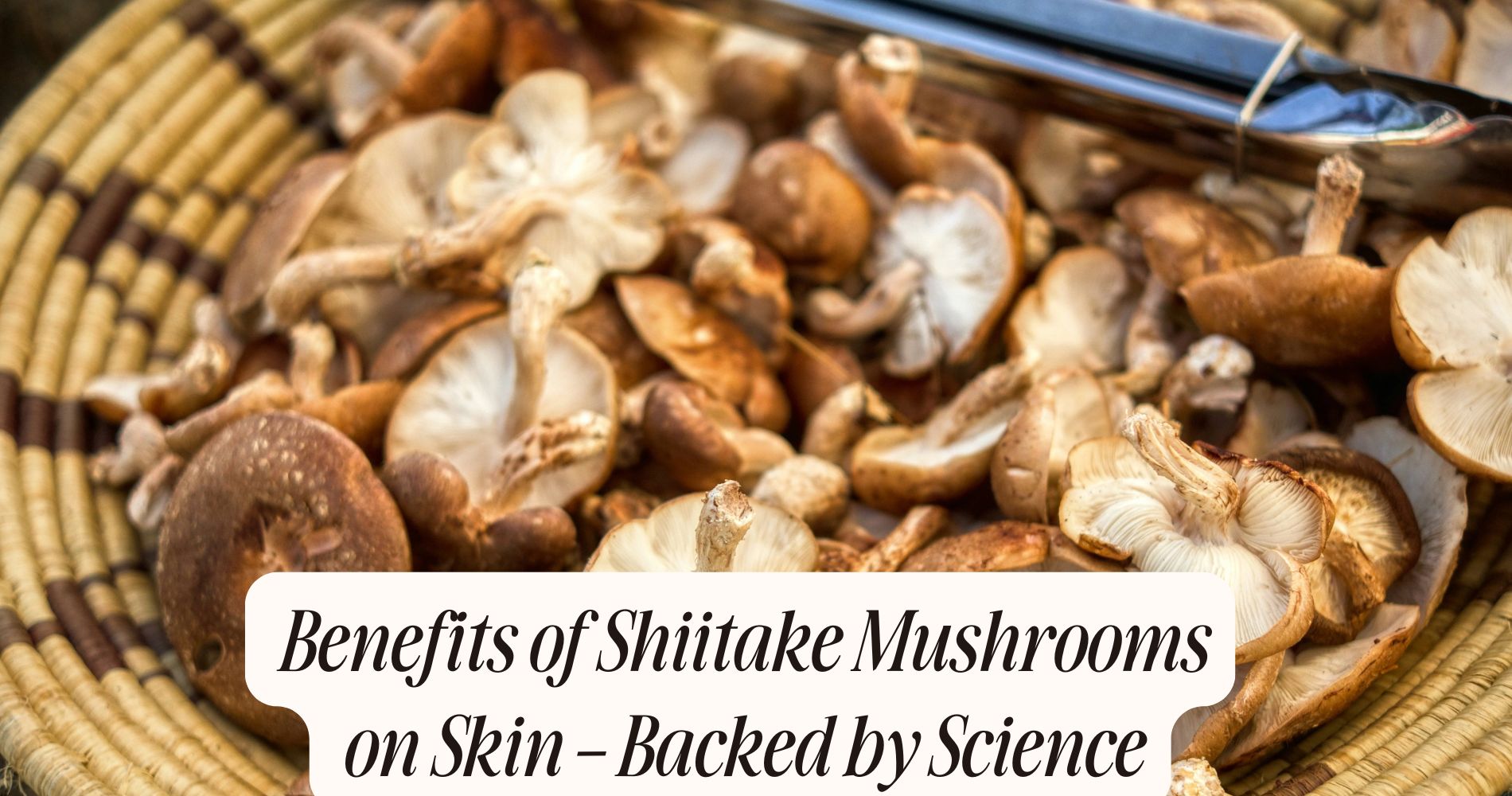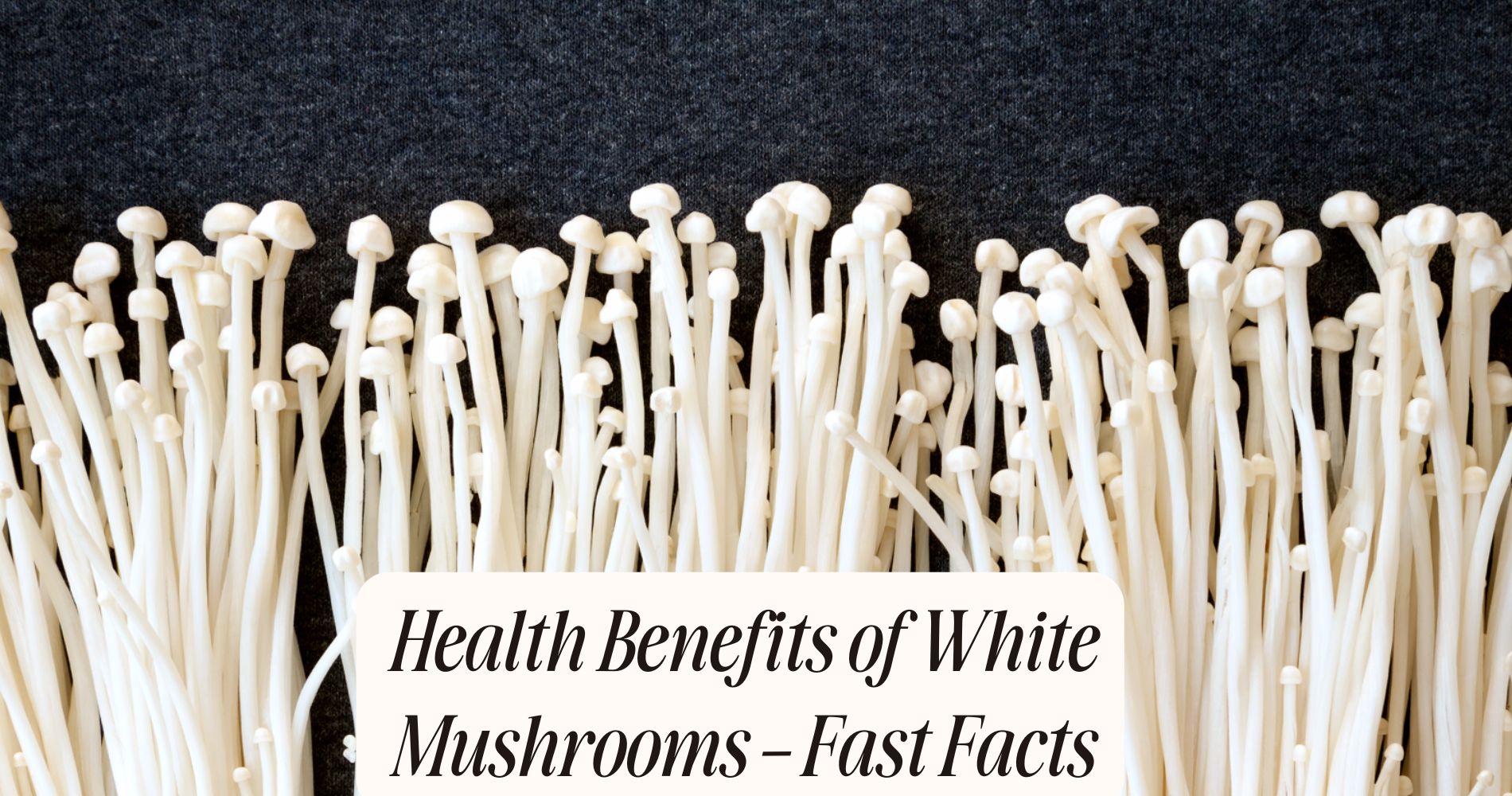
What Does Reishi Mushroom Do to Liver? Health Impact
What does reishi mushroom do to liver? When you use reishi mushroom, its triterpenoids and polysaccharides support your liver by enhancing antioxidant defenses, lowering oxidative stress, and modulating detoxification enzymes. It may help normalize elevated liver enzymes like ALT and AST, and shield liver cells from damage. While early studies suggest benefits for liver resilience and metabolic clearance, reliable clinical evidence remains limited. To understand its mechanisms, safety, effects on liver conditions, and usage best practices, further insights are outlined below.
Traditional Uses of Reishi Mushroom for Liver Health
Although modern medicine continues to explore the full potential of Ganoderma lucidum (reishi mushroom), traditional Chinese and Japanese medical systems have long incorporated this fungus for its hepatoprotective properties.
You’ll find that practitioners often prescribe reishi within traditional formulations, combining it with other botanicals to enhance herbal synergy and therapeutic efficacy. Historical texts describe its use in addressing hepatic insufficiency, jaundice, and toxin-induced liver dysfunction.

These practices rely on reishi’s perceived ability to modulate vital energy (Qi) and support liver detoxification pathways. In decoctions or powdered extracts, reishi is seldom used in isolation; instead, it’s integrated with herbs like Schisandra or Licorice to optimize liver protection and restore systemic balance.
Such integrative approaches reflect a holistic understanding of hepatoprotection in traditional medicine.
Key Bioactive Compounds in Reishi Mushroom
Building on reishi’s longstanding reputation in traditional medicine, contemporary research attributes much of its hepatoprotective potential to a diverse array of bioactive constituents. You’ll find that the principal bioactive compounds in reishi (Ganoderma lucidum) include triterpenoids, polysaccharides, peptidoglycans, sterols, and ganoderic acids.
These molecules exert their effects through well-characterized molecular mechanisms, such as modulating hepatic antioxidant enzyme activity, regulating cytokine production, and inhibiting inflammatory pathways.
Significantly, triterpenoids and ganoderic acids demonstrate potent free radical scavenging and anti-inflammatory actions, directly influencing hepatocyte integrity.
Polysaccharides support immunomodulation, enhancing the liver’s resilience under oxidative stress.

Together, these compounds form a multifaceted pharmacological profile, enabling reishi to interact with multiple cellular targets and signaling cascades relevant to liver health.
Understanding these molecular mechanisms is essential for appreciating reishi’s clinical utility in hepatoprotection.
How Reishi Mushroom May Support Liver Detoxification
When examining reishi mushroom’s role in liver detoxification, you’ll find its bioactive constituents actively modulate phase I and phase II hepatic enzyme systems. These phases are vital for biotransformation and elimination of endogenous and exogenous toxins.
Reishi’s triterpenoids and polysaccharides support hepatic glutathione synthesis and upregulate conjugation pathways, promoting efficient toxin neutralization and excretion.
Integrating reishi into liver detox protocols may enhance the organ’s resilience against oxidative stress induced by xenobiotics. Evidence suggests that when you use reishi in herbal combinations, it can synergistically amplify detoxification processes without overburdening hepatic function.
Clinical and preclinical data indicate a potential for reishi to optimize metabolic clearance and maintain hepatic homeostasis, making it a strategic component in evidence-based liver support regimens.
Effects on Liver Enzymes and Biomarkers
As research continues to clarify reishi mushroom’s hepatoprotective actions, investigators have focused on its influence over key liver enzymes and biomarkers of hepatic function.
When you examine the evidence, you’ll find that reishi mushroom demonstrates significant liver enzyme modulation. Clinical studies indicate that supplementation may help normalize elevated alanine aminotransferase (ALT) and aspartate aminotransferase (AST) levels, both critical indicators of hepatocellular integrity.

Moreover, reishi shows potential to improve biomarkers such as total bilirubin and alkaline phosphatase (ALP), suggesting enhanced hepatic excretory function. This biomarker improvement points to reishi’s possible role in supporting liver homeostasis and mitigating hepatic stress.
If you’re monitoring your liver health, these findings suggest that reishi mushroom could help maintain healthier enzymatic and biochemical profiles, supporting overall hepatic function.
Antioxidant Properties and Liver Protection
Although oxidative stress is a primary driver of liver injury, reishi mushroom offers robust antioxidant properties that may counteract this threat. You’ll find that reishi contains bioactive compounds such as polysaccharides and triterpenoids, which neutralize reactive oxygen species (ROS) and mitigate lipid peroxidation within hepatic tissue.
These antioxidant mechanisms can support cellular repair processes, preserving hepatocyte integrity and function. Additionally, reishi’s immune boosting capabilities enhance the liver’s resilience by modulating immune surveillance and promoting tissue homeostasis.
Clinical and preclinical studies show that supplementation with reishi extract elevates endogenous antioxidant enzyme activity, including superoxide dismutase and glutathione peroxidase, further fortifying the liver against oxidative insults.
Reishi Mushroom’s Role in Reducing Liver Inflammation
How does reishi mushroom intervene in the inflammatory pathways that underlie chronic liver disease? You’ll find that reishi’s bioactive compounds, particularly triterpenoids and polysaccharides, modulate immune responses and suppress pro-inflammatory cytokines such as TNF-α and IL-6.
These actions directly inhibit hepatic inflammation, a key driver of liver fibrosis. By reducing oxidative stress and downregulating NF-κB signaling, reishi can limit the activation of hepatic stellate cells—cells responsible for excess collagen deposition during fibrosis progression.

Clinical studies and animal models indicate that reishi administration leads to decreased serum markers of liver inflammation and improved histological profiles. To sum up, reishi mushroom actively disrupts the molecular mechanisms promoting hepatic inflammation and subsequent fibrotic change, thereby supporting your liver’s structural integrity and function in chronic disease settings.
Potential Benefits for Fatty Liver Disease
Building on reishi mushroom’s anti-inflammatory actions in the liver, its potential benefits extend particularly to non-alcoholic fatty liver disease (NAFLD). If you’re exploring adjunctive fatty liver therapies, research suggests reishi’s bioactive compounds—like triterpenoids and polysaccharides—may modulate hepatic lipid metabolism and reduce hepatic steatosis.
Studies indicate these compounds can downregulate lipogenic gene expression, promote fatty acid oxidation, and inhibit inflammatory cytokines, all of which are vital in NAFLD management. Additionally, reishi may support liver regeneration by enhancing hepatocyte proliferation and reducing oxidative stress within liver tissue.
Safety Considerations and Possible Side Effects
When considering reishi mushroom supplementation for liver health, it's crucial to evaluate its safety profile and potential adverse effects. You should pay close attention to dosage considerations, as excessive intake may elevate the risk of hepatotoxicity and gastrointestinal disturbances such as nausea, diarrhea, or abdominal discomfort.
Reishi can interact with anticoagulant or immunosuppressive medications, so a thorough medication review is essential before initiating supplementation.
Allergy risks, although rare, can manifest as skin rashes, respiratory symptoms, or anaphylaxis, particularly if you have a history of mushroom allergies.
Chronic use or high doses may result in laboratory abnormalities like elevated liver enzymes.
Consequently, you should consult a healthcare professional, start with a low dose, and monitor for adverse reactions to mitigate safety concerns.
Scientific Evidence: What Do Human Studies Show?
Although reishi mushroom has a long history of use in traditional medicine for liver health, robust evidence from human clinical trials remains limited. You’ll find that most available data come from small-scale studies or trials with methodological limitations, such as inadequate blinding or short duration.
Some research indicates potential hepatoprotective effects, including improved liver enzyme profiles and reduced markers of oxidative stress in subjects with chronic liver disease. However, these findings aren’t universally consistent, and larger, well-controlled clinical trials are needed to confirm efficacy.

Additionally, there’s no standardized dosage guideline established for liver support, as studies often use varying extract concentrations and administration durations. Until more rigorous human trials are conducted, you should interpret claims about reishi mushroom’s liver benefits with caution.
Practical Tips for Using Reishi Mushroom for Liver Support
If you’re considering reishi mushroom as an adjunct for liver support, it’s essential to prioritize standardized extracts that clearly indicate beta-glucan content and quality assurance testing. Select products that specify polysaccharide concentration to ensure consistent bioactive compound delivery.
For maximum efficacy, follow evidence-based dosage guidelines—typically, clinical studies use 1.5–3 grams of reishi extract per day, but individual requirements may vary. Consult your healthcare provider before initiation, especially if you’re taking hepatotoxic medications or have pre-existing liver pathology.
Regarding preparation methods, hot water extraction is preferred, as it enhances the bioavailability of triterpenoids and polysaccharides. Avoid raw or unprocessed reishi, as these forms may not provide sufficient active constituents.
Monitor liver function parameters periodically to assess therapeutic response and safety.
Support Liver Wellness the Easy Way: SUPER MUSHROOM GUMMIES
Now that you know what does reishi mushroom do to liver, why not enjoy its benefits—plus nine other powerful mushrooms—in one convenient form? Well Gummies' SUPER MUSHROOM GUMMIES offer a tasty, vegan-friendly way to support your liver, immune system, and mental clarity. With no prep needed, these wild berry-flavored gummies deliver natural energy, calmer focus, and essential nutrients—all without jitters or crash. It’s a delicious daily ritual to help keep your body balanced and your liver supported. Shine from the inside out with Well Gummies!
Frequently Asked Questions
Can Reishi Mushroom Interact With Other Liver Medications or Supplements?
You should consider drug interactions and supplement safety when taking reishi mushroom with liver medications or supplements. Evidence suggests reishi may affect cytochrome P450 enzymes, potentially altering pharmacokinetics and efficacy of concurrent hepatoprotective or hepatotoxic agents.
Is Reishi Mushroom Safe for People With Existing Liver Disease?
If you have existing liver disease, you should use caution with reishi mushroom. While it may support liver detoxification and immune modulation, clinical evidence is limited and rare hepatotoxicity cases exist. Consult your healthcare provider first.
How Does Reishi Mushroom Compare to Milk Thistle for Liver Health?
When you compare Reishi mushroom to milk thistle, you'll find Reishi primarily supports liver detoxification and immune modulation, whereas milk thistle demonstrates strong hepatoprotective effects through silymarin, enhancing cellular regeneration and reducing oxidative stress in hepatic tissue.
Can Reishi Mushroom Prevent Liver Damage From Alcohol Consumption?
You may experience limited protection from alcohol-induced liver damage with reishi mushroom, as preliminary studies suggest it supports alcohol detox and liver regeneration. However, robust clinical trials are lacking, so you shouldn't rely solely on reishi for hepatoprotection.
Are There Any Specific Dietary Restrictions When Taking Reishi Mushroom for Liver Support?
You don't need strict dietary restrictions when taking reishi mushroom for liver support, but adhere to recommended dosage guidelines. Avoid high-fat foods to optimize absorption. Incorporate reishi's culinary uses by adding it to broths or teas for therapeutic benefit.
Conclusion
If you're considering reishi mushroom for liver health, current evidence suggests its bioactive compounds may offer antioxidant and hepatoprotective benefits, potentially supporting liver detoxification and improving biomarkers in some cases. However, human studies remain limited and results are mixed. While generally well-tolerated, reishi can cause mild side effects and interact with medications. Consult your healthcare provider before starting supplementation, especially if you have underlying liver conditions or take other medications, to guarantee safety and efficacy.




